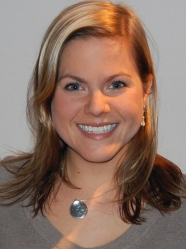Redefining “Need”
By Kerri Sparling

by kerri morrone sparling
As an American with type 1 diabetes, a job, health insurance, and an excellent support system, I have the luxury of redefining “need.”
“Oh, I need a meter that can automatically sync up with my laptop so I can send logbook data to my endocrinologist.”
“I need software that can work with my MacBook.”
“I need to find my backup glucose meter.”
These statements don’t exemplify “need.” Those are “wants.” The true needs are the same for a person with diabetes as they are for anyone: food, shelter, and safety … save for that one rogue thing: insulin. The only thing I truly need, by definition, is that little vial of insulin.
Everything else – the meter, the test strips, the continuous glucose monitor, etc. – all of it is a want. Of course my diabetes management fares better when I’m armed with as many tools as I can effectively make use of, but at a truly basic level, I really only need insulin.
A few weeks ago, I ordered a three-month supply of Humalog insulin and the total came to $697.00 (six vials). Thanks to a change in our insurance coverage, my husband and I are responsible for that total cost, and will be responsible for every prescription until a large deductible is met. So for the next few weeks, every insulin bottle and test strip ordered will be paid for out of pocket.
The perspective of that kind of realization is immediate. It makes every test strip that throws an error code and every inch of tubing that retains insulin on site-change day mean something more than just “garbage.” When I was a young child with type 1 diabetes, I had no concept of money or insurance coverage or any of the hoops that needed to be jumped through (after they were lit on fire, of course). In my head, bottles of insulin just showed up in the butter compartment of our fridge, and I never paid it much mind. I’d always had a reach on the emotional cost, but it wasn’t until I was older and living on my own that I truly understood the financial responsibility of diabetes. And I realized how lucky I was to have lived in those moments of ignorance.
Every time I see the International Diabetes Federation’s (IDF) Life for a Child documentary, I am humbled. Really humbled. The kids profiled in the documentary are living with type 1 diabetes, but their situation is unlike any I’ve seen here in the United States. One child in Nepal keeps his sole vial of insulin in a jar in the floor to protect it from the heat. Another child travels by foot, bicycle, and bus for hours to be seen by a village doctor. Their life with diabetes is defined by the ability to access life-saving insulin.
Insulin is delivered to my comfortable home by a delivery service, stored in the refrigerator, which is also filled with food. Though my insurance doesn’t cover the cost in full right now, I do have insurance. And I do have a job that can cover the bill. My pancreas doesn’t produce its own insulin, but my country has resources that provide it for me.
As someone who has access to so much, I am drawn to helping those who don’t have the same opportunities. I was very lucky to have had the opportunity to travel to Dubai, United Arab Emirates this past December for IDF’s World Congress, where I met and spoke with people who are helping people whose lives are touched by diabetes. And not “helping” in the sense that they’re assisting with free pouches of glucose tabs, but helping in the sense that they are instrumental in providing life-saving insulin to people with diabetes.
This is why the mission of IDF’s Life for a Child program is so important. It strips away any Western connotations of the word “need” and rips it down to the basics. People who have diabetes need insulin. Without it, they will die.
I heard Jean Claude Mbanya, President of the IDF, speak at an event a few months ago, and he spoke about how diabetes affects people – not just people who are born in the United States and have access to decent care, but also the people who, by chance or circumstance, do not share this same opportunity.
As a community of people with diabetes, we need to strive to take the best care we can of ourselves. But we should also take care of each other.








